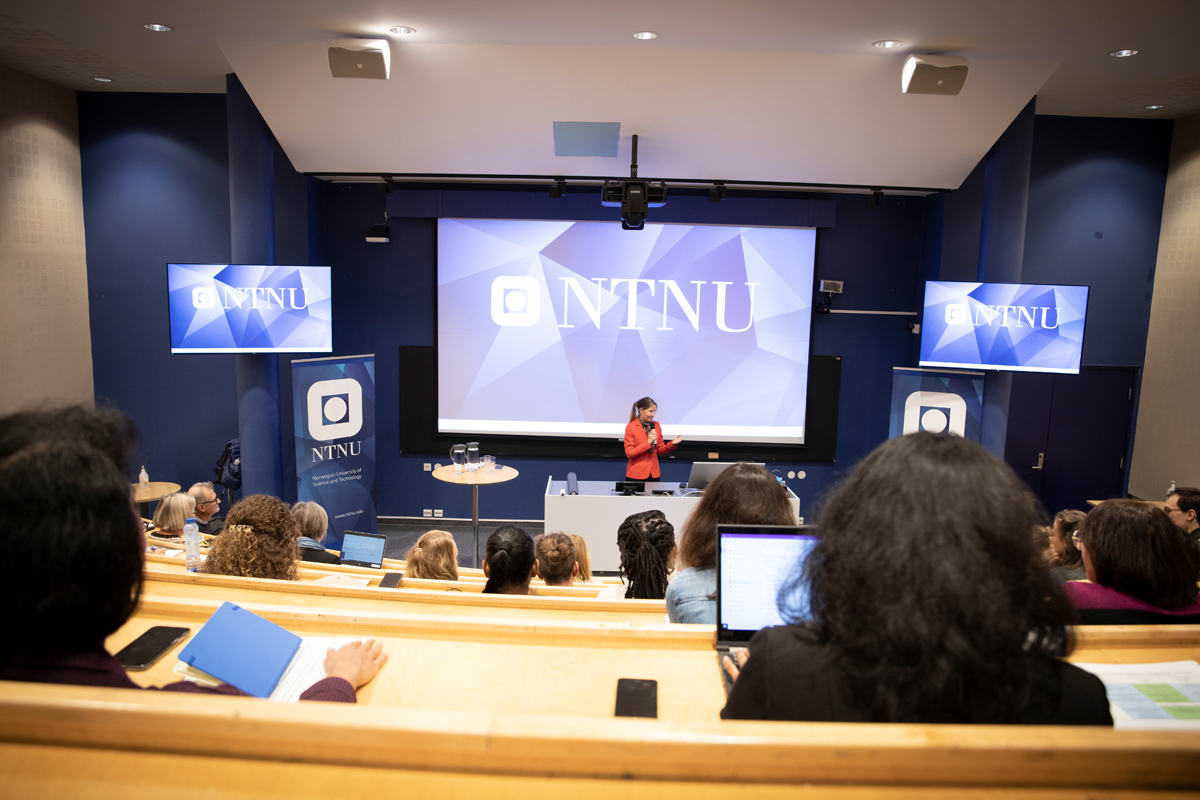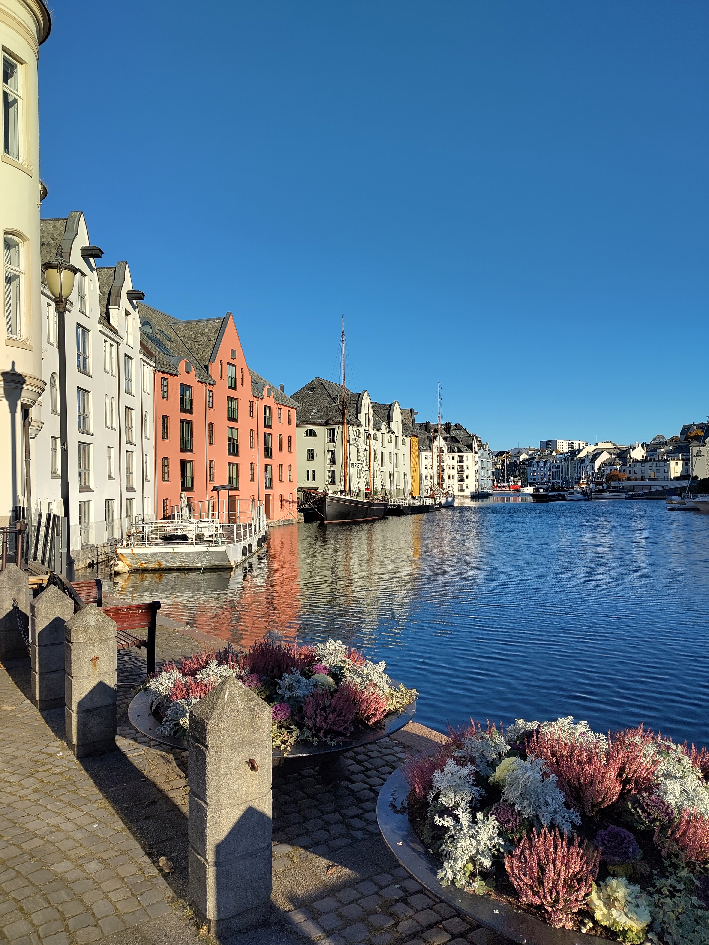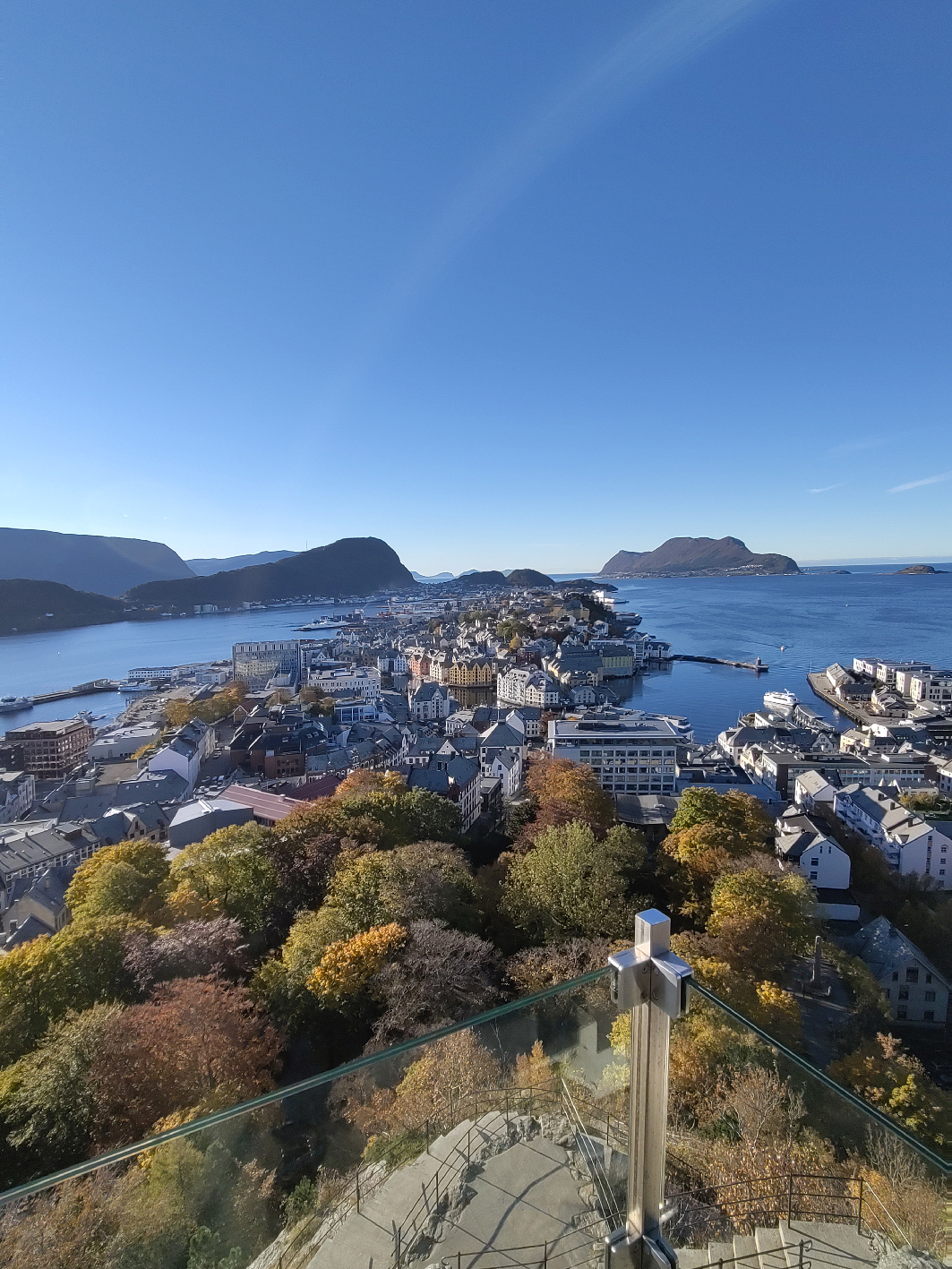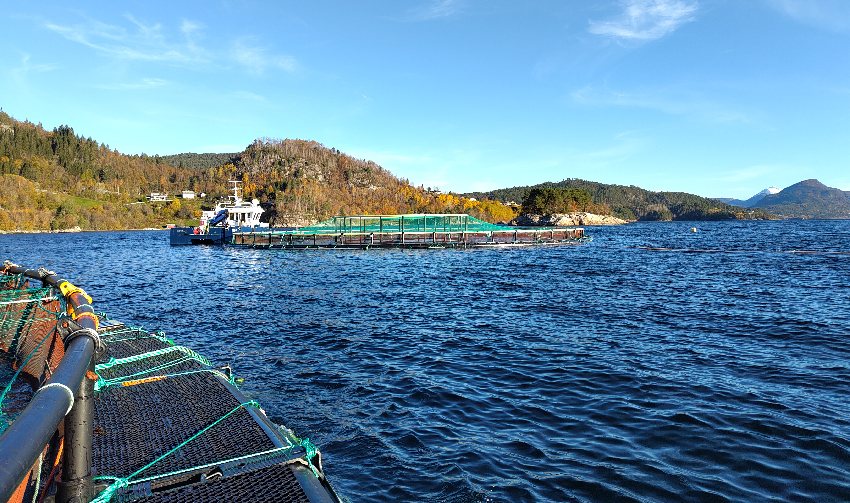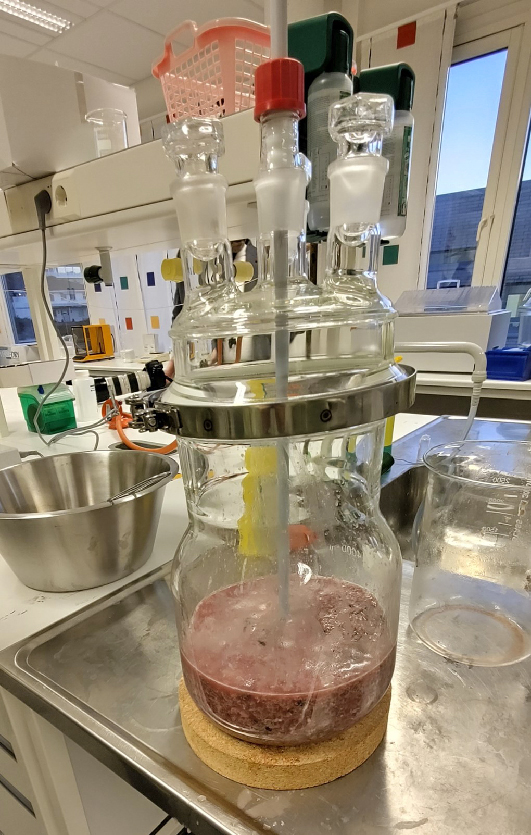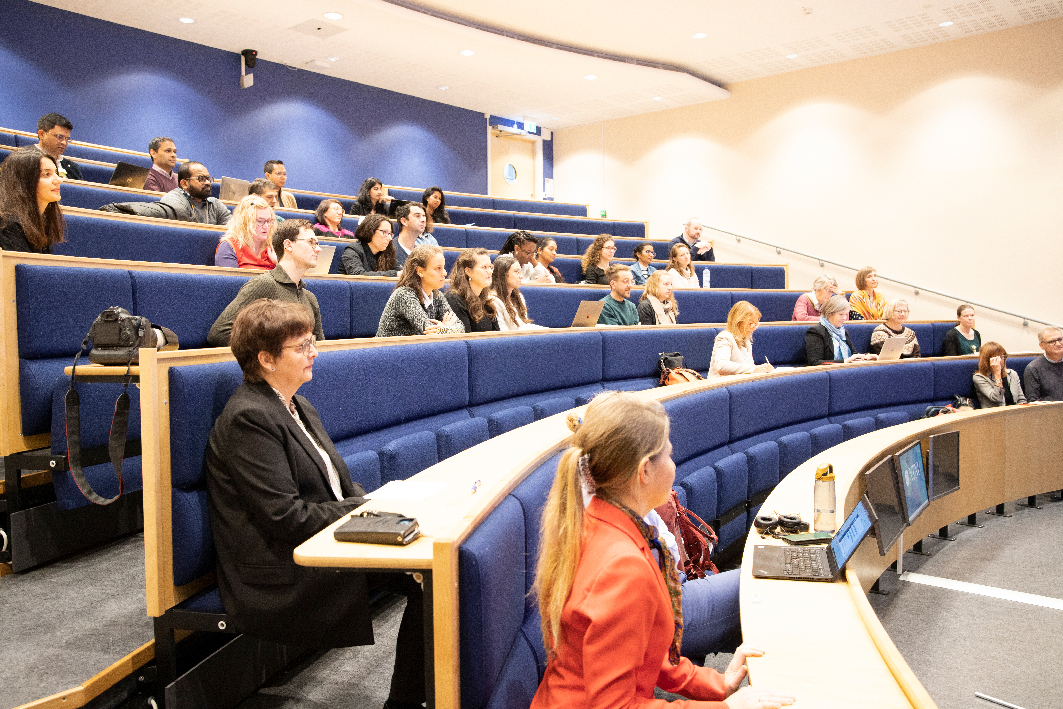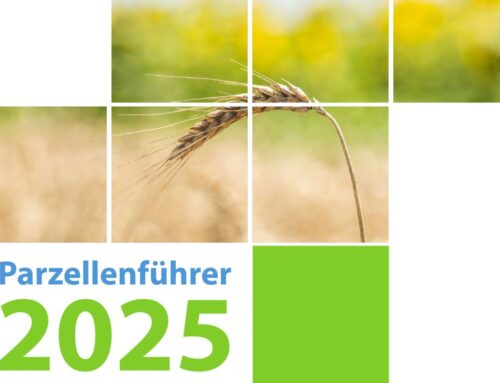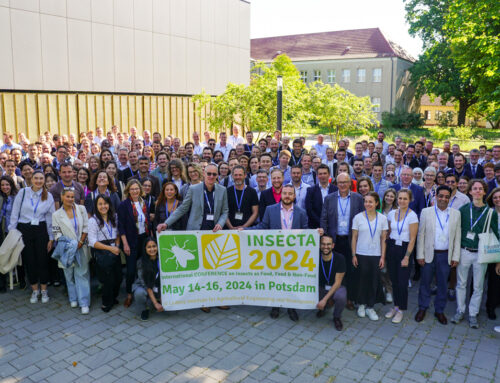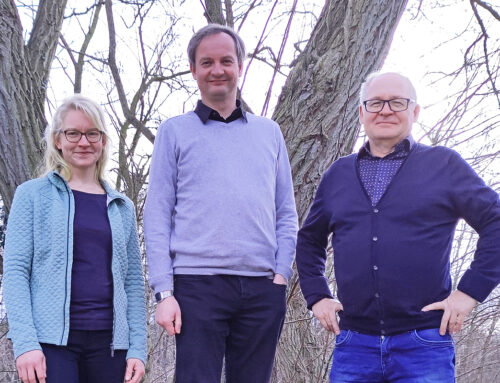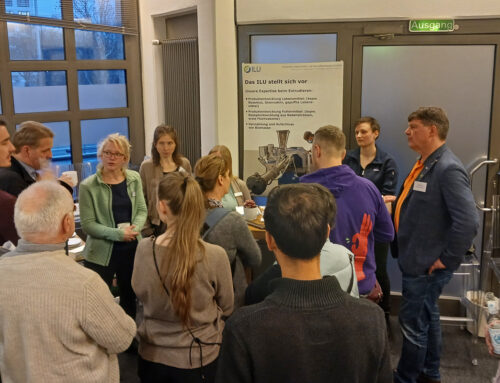Fish and seafood from aquaculture are making an increasingly important contribution to meeting the protein needs of the world’s growing population. Care must be taken to ensure that the aquatic circular economy is climate-friendly and that residues and side streams from aquaculture are utilised sustainably. The Climaqua project, which is coordinated by the ILU, focuses on these issues.
At the end of October, the Norwegian University of Science and Technology (NTNU) – another partner in this project – organised a scientific practice course in Ålesund on the coast of western Norway. The event, which consisted of lectures, practical exercises and an excursion, was attended by 23 researchers from ten countries. In the practical part, the participants were introduced to innovative methods for utilising marine raw materials and side streams for the manufacture of high-quality products. Stephanie Schönfelder from the ILU also took part. The biochemistry graduate works on the Climaqua project. She was also invited to give a presentation and spoke about the utilisation of side streams from aquaculture and fish processing for heterotrophic algae cultivation. The results of the Climaqua project were recently published.
In addition to lectures and discussions by and with men and women from science, the event was rounded off with an excursion to a fish farm in Gudmundset. The course was financed by BlueBio Cofund.
- Picture: Stephanie Schönfelder (ILU)
- Picture: Stephanie Schönfelder (ILU)
- Picture: Stephanie Schönfelder (ILU)
- Picture: Stephanie Schönfelder (ILU)
- Picture: Børge Sandnes (NTNU)
- Picture: Børge Sandnes (NTNU)
